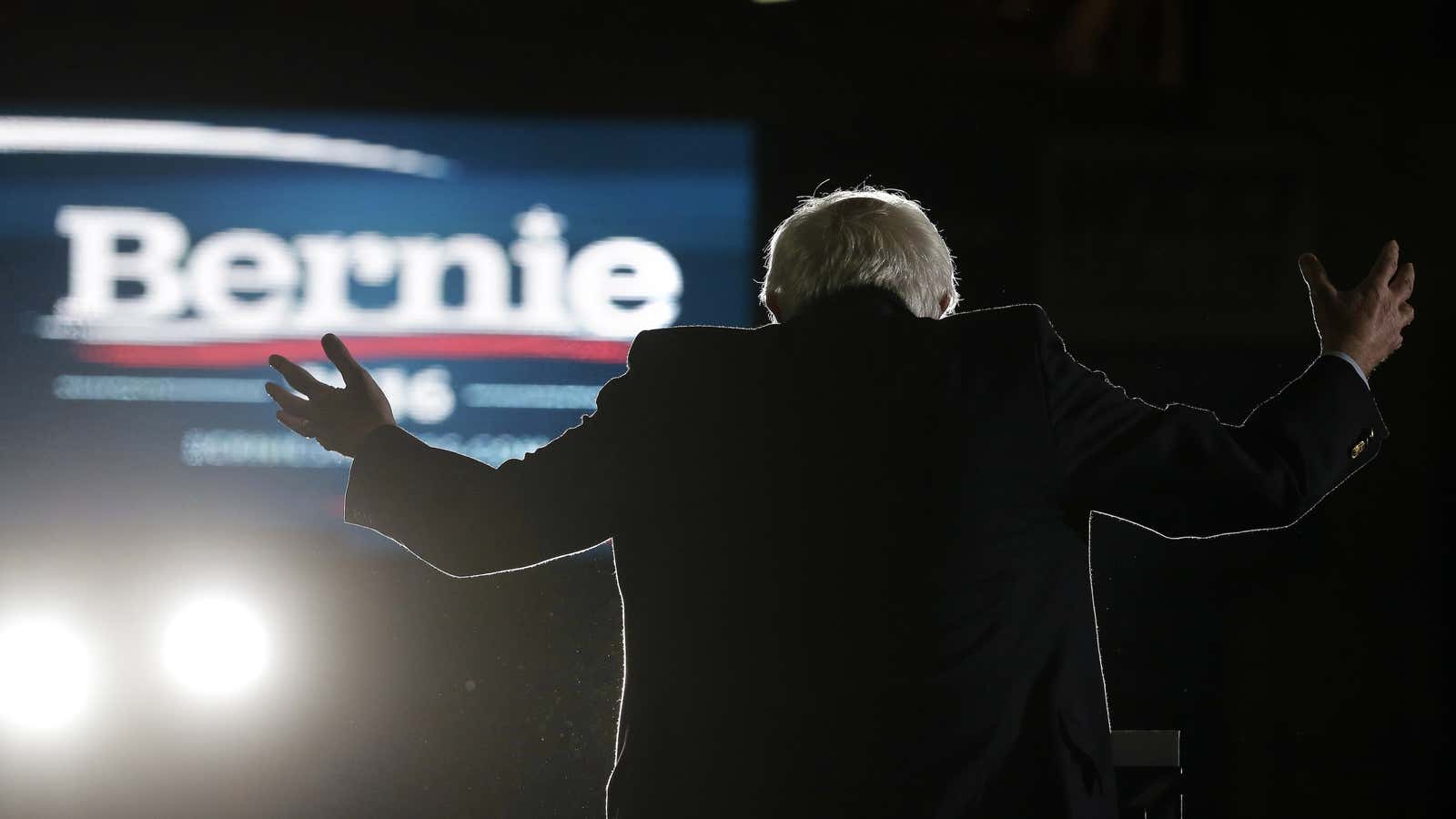Voters go to the polls for the issues they care about most—right?
For Bernie Sanders, things may not be so simple. The Vermont senator’s campaign to highlight income inequality and the pervasive influence of Big Money in politics may be inadvertently suppressing the very votes he needs to defeat Hillary Clinton in the Democratic presidential primary.
Adam Seth Levine, an assistant professor of government at Cornell University and author of American Insecurity: Why Our Economic Fears Lead to Political Inaction (Princeton University Press, 2015), thinks that Sanders’s twin themes might actually be discouraging Americans in “the broad middle class” from participating in politics altogether.
“When you remind people about the problems they’re having—their personal financial constraints—that might have unintended consequences,” he tells Quartz. “It may not be the kind of motivator we might intuitively expect it to be.”
Sanders’s focus on job losses, health-care costs, and college debt are designed to create a political revolution. But they also run the risk of stressing voters out.
Chicago-based marketing analytics firm Networked Insights tracked social-media conversations pertaining a number of top contenders for the US presidency. It identified “stress” as the overwhelmingly definitive theme of discussions surrounding Bernie Sanders and his money-conscious campaign platform. NI found 6% of social conversations around Sanders triggered stress, and 4% triggered anxiety—significantly higher than the average for Donald Trump, Hillary Clinton, or Ted Cruz. Sanders is the only candidate for whom “stress” and “anxiety” made it into the top six signifiers.
Financial stress in particular can manifest in something called mental accounting, a concept coined by economist Richard Thaler in the 1990s.
“Mental accounting is all about how people decide whether or not they can spend scarce resources on certain activities,” Levine explains. “Certain kinds of opportunity costs are being made more salient by Sanders’s campaign than people might not otherwise take into account.”
In other words, when people are already discouraged by the political and economic state of affairs, they’re far less likely to make the personal sacrifices, like campaigning for a presidential candidate, or taking time off work to vote—particularly if they’re not being compensated for said time. This becomes especially true in states who select candidates by caucuses, which are generally more time-consuming than primaries.
This, Levine assures, does not negate Sanders’s popularity nationwide. Voters aren’t staying away from polls because they dislike Bernie Sanders, nor are they necessarily averse to talking about economic issues. Lower-than-expected turnout is simply the amalgamated result of individuals facing personal barriers to political participation, and opting out when made to overthink it.
“We’ve had two caucuses now [Iowa and Nevada] where turnout is not matching the 2008 benchmark,” Levine says. “And if you look at some of the exit poll data, there’s not much evidence that there’s a huge groundswell of increased turnout among first-time voters, younger voters, or low income voters.” Those are three demographics that Sanders must win over, and who also face economic concerns that are immediate and anxiety-inducing.
“For as much enthusiasm as Sanders appears to be getting in surveys, it doesn’t appear to be translating to the kind of turnout he needs,” Levine says.
